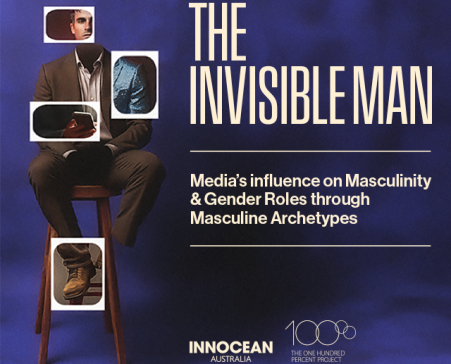Diversity of Thought Blog
So what is the UN Commission on the Status of Women?
You may have heard the 60th Session of the UN Commission on the Status of Women is currently underway in New York. But do you ever wonder what the Commission is and how it contributes to the advancement of women?
What is the UN Commission on the Status of Women?
- “An annual meeting, taking place at United Nations Headquarters in New York from 14-24 March 2016. Global leaders, NGOs, private sector, and activists meet to discuss critical issues for women, galvanize attention and spur action. More than 1,035 NGOs and a total of 8,100 representatives have registered to participate.[1]”
- “The session provides an opportunity to review progress towards gender equality and the empowerment of women, identify challenges, set global standards and norms and formulate policies to promote gender equality and women’s empowerment worldwide. The session is also a key opportunity for policy makers, advocates, researchers and activists to network and strategize, mobilize and plan new initiatives and actions to further the cause of gender equality and women’s empowerment.[2]”
What is the history of the UN Commission on the Status of Women?
- “The Commission was established with a mandate to prepare recommendations on promoting women’s rights in political, economic, civil, social and educational fields.[3]”
- All of the initial fifteen government representatives were women. The Commission has maintained a majority of female delegates.
- Jessie Mary Grey Street was Australia’s representative at the first Session in 1947.
What is the focus of the 2016 commission?
The agreed priorities for 2016’s Session are:
- The empowerment of women and how to integrate women’s empowerment into the UN’s sustainable development goals; and
- To review previous work on the elimination and prevention of all forms of violence against women and girls.[4]
How does the Commission perceive we are progressing on women’s empowerment? There’s still a long way to go.
- “As we acknowledge progress made, especially in the last 20 years, we also note that for many women and girls at risk, that change is not happening fast enough. For example, it is forecast that it will take 50 years to achieve parity in political participation, and 118 years for true pay equality between women and men at the current pace of change. To break these trajectories and achieve Planet 50-50 by 2030 will take dramatic steps and the adoption of business un-usual by all of us.[5] “ UN Under-Secretary-General and UN Women Executive Director Phumzile Mlambo-Ngcuka
Our own research at The 100% Project says we need to engage men in the fight for gender equality, and the UN knows this too:
- “We know we must engage not only our traditional partners, but also involve men and boys in large numbers, and reach out beyond our comfort zones to those with whom we may not agree or sympathize.” UN Women Executive Director Phumzile Mlambo-Ngcuka
- “We insist in UN Women that the struggle for gender equality is not just for women—it is for everybody, and those with authority and power, especially; they must lead from the front,” said Ms. Mlambo-Ngcuka. “…Leaders must use the authority that they have…This fight is big; it needs to be diversified; and mobilizing and working with men and boys has been a critical strategy for UN Women.[6]”
What is Australia’s contribution to the UN’s gender equality goals?
Australia’s delegation committed to the following in a statement to the Global Leaders’ Meeting on Gender Equality and Women’s Empowerment in September 2015:
- “Australia is making new commitments both internationally and at home to empower women and girls.
- “Australia’s Minister for Foreign Affairs has launched a new Gender Equality Fund. This Fund will accelerate support for gender equality in our overseas development program with a focus on women’s economic and leadership participation and addressing violence against women.
- “Australia will confront record levels of homicide of women, and domestic and family violence, committing new funds for frontline services, support for women from culturally and linguistically diverse backgrounds who are experiencing violence, and primary prevention initiatives to change the attitudes of young people towards violence against women and their children.
- “To increase women’s workforce participation… Australia is providing new financial literacy projects for women, improved assistance for child care and small business reforms that will deliver new opportunities for women in the workforce.[7]”
How does the Commission encourage Women in business?
- “During March 15-16, business leaders joined UN Member States and civil society organizations at the Women’s Empowerment Principles (WEPs) Annual Event. It focuses on the multiplier effect of empowering women and girls in advancing all development issues and the enormous opportunity for business to lead on promoting gender equality.
- “The Women’s Empowerment Principles provide companies with an integrated and proven approach to unlocking the power of women in business and society.
- “It is the largest business-led gender equality initiative in the world endorsed by more than 1,100 CEOs from 80 countries.
- “Held in conjunction with the 60th Commission on the Status of Women, this year’s annual event spotlighted companies that are implementing the WEPs to achieve the SDGs, step up action, and find innovative ways to partner and advance gender equality.
- “Lise Kingo, Executive Director of the UN Global Compact, told participants: ‘We have not reached the tipping point on gender equality. It’s time that we have honest conversations about what is really holding women back. We need to end bias, both overt and unconscious. We must recognize that gender equality is not just a women’s issue—it’s a men’s issue, a family issue, a community issue and a business issue.’[8]”
Begin implementing the Women’s Empowerment Principles in your business by starting here.
Canada’s popular Prime Minister, Justin Trudeau, enforced a 50-50 gender ratio when appointing his cabinet. He urged the global community to work together for woman’s advancement during a discussion on equal pay.
- “This needs to be seen not as a women’s movement but as a global movement… We need to challenge folks to step up.” “To any world leader that tells me: ‘I’d love to, I just can’t do that with the current configuration’… I say ‘Well, what are you doing to change that configuration and draw out those extraordinary women who can’t be the leaders we need them to be’?” said Prime Minister Trudeau. “This is the way the world needs to go and this is the way we’re going make it go—together.[9]”
The Commission will wrap up on the 24th March 2016. We will bring you a summary of events and the outcomes of the 2016 Commission once the UN finalises its findings. In the meantime, you can watch a live broadcast of the events at http://webtv.un.org/

